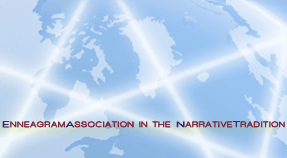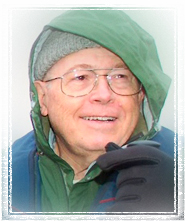



"Living the Truth..." Is this Phrase Ethically Useful, Does It Give Desirable Results?— By Russell Burck PhD, Certified Teacher in the Narrative Tradition Sometimes I wonder why I choose to call these reflections "Living the Truth." "Living the Truth" is vague and idealistic, like "human flourishing" of previous articles. It's not robust like Ginger Lapid-Bogda's guidelines in issues of Talk several years ago. I ask myself, "Does the phrase contain a practical message?" A way to test whether something delivers a practical message is to ask whether it delivers perceptible results. Results and ethics. Here's an example from clinical ethics. For simplicity, I'll limit it to the patient-physician relationship. Physicians "live the truth" by asking questions that yield information about the patient's condition, by examining the patient, and by employing all of the other procedures that go into determining whether the patient has a condition that needs treatment, and, if so, what it should be. One of the goals of ethics is to "do good" or to remove or reduce harms. Doctors' actions with patients "do good" for them by producing specific results: A diagnosis, a declaration that the patient needs no treatment or a recommendation of treatment, the treatment, and the follow-up. Ethics shapes these activities long before the physician enters the territory commonly staked out as "medical ethics." In fact, long before the physician enters the consulting room as a qualified professional with patients of her own, her encounter with the ethics of medicine took her down paths that would have been forbidden if she weren't officially in the doctor track: Dissecting cadavers, sticking needles or cutting into living people, giving medications that have serious side-effects, and so on. I remember the graduation of people who were going into nursing as part of a second career. One speaker mentioned how afraid she was to administer her first injection. "Now," she said, "I do it as a matter of course." Ethics and habit. Aristotle linked ethics and habit. Habit is one of the observable results of professional education. The habits and routines of clinicians are perceptible results that are socially desirable. As a society, we want alcoholism treatment professionals who can call alcoholics on their bull**** without being condemning, nutritionists who talk comfortably with obese people about their weight, audiologists who can tell parents that their child's hearing loss cannot be reversed and perhaps can cry with the parents, physical therapists who do not outwardly wince when they challenge their patients to endure pain for the sake of rehabilitation, and on and on. As society and the professions evolve, the habits and routines may change, but we want the people who occupy those positions to have developed the habits that pertain to them. Informed Consent as one Discernible Result of Medical Ethics. One of the boundary lines in the patient-physician relationship is that the physician asks the patient for "informed consent" to treatment before treating. A generic informed consent documents the patient's agreement to be seen by the doctor in the first place, but other specific consents may follow, especially, if major interventions like surgery or blood transfusion are to occur. The process of "informed consent" produces its own tangible results. Usually there isn't any tangible result that comes from the physician's act of telling the patient apart from whatever the she puts in the medical record. That's not an issue, because audio- or video-recording could produce one. We know that. The process of informed consent does produce one tangible result that is considered vitally important in health care today: A document called something like "Informed consent." This document purports to show that the patient understands the nature and consequences of the decision to receive treatment. Before receiving treatment, the patient technically "lives the truth" by listening to the physician's presentation of the results of the examination and ultimately by signing the informed consent form. I say technically, because there is likely to be a great deal that the patient does not understand and that would be material in determining whether the patient understands the nature and consequences of the decision. If the physician has had bad news to tell the patient, the patient may not have heard one word after "cancer," "end-stage liver disease," "irreversible" whatever. Results that Matter Ethically. At this point it becomes clear that health care professionals cannot be satisfied with the tangible results that their relationship with the patient has produced so far. The signed document is not enough. Clinicians need results that are even more precise. For example, a nephrologist takes to heart that the patient is a key member of the health care team. He believes that the patient is the key member, that without the patient there isn't any health care team. There is just an assembly of health care pforessionals. Prepared with these convictions, he does everything he can to make sure that the patient, Ms. Adams, understands the nature and consequences of the decision to accept or refuse, to continue or discontinue dialysis. In the privacy of the consulting room, Ms. Adams tells him that she doesn't want dialysis any more. She says that she understands that the end-stage renal disease will progress slowly over several months, perhaps the better part of a year, but that eventually, she will die from it. She signs a refusal-of-consent-to-treatment form. At the moment, the physician has a tangible result that matters ethically: A signed piece of paper that can be put in the patient's chart. Barring the unforeseen and often unimaginable challenges of clever attorneys, this result matters legally, too. Tangible Results Upset. Except that the nephrologist didn't have Ms. Adam's children or friends in the room at the time the patient signed the refusal-of-consent form. When the children hear that the patient is refusing treatment, they begin to work on her. The patient begins to waver. If she thinks only of herself, Ms. Adams is content to leave bad enough alone and let death wend its way to her in its own time and pace. Thinking of her children, she doesn't want to hurt them by not fighting to live. She may even want to be an example of courage and endurance for them when they face similar tough decisions on their own. Besides, she hadn't thought that she mattered so much to them that they'd object to her decision. By "hadn't thought" I mean that, in her mind, this decision was her own private decision. What her children would think of it had never entered her mind. She hadn't asked the doctor, "But what do I do, if my children don't like my decision?" And the nephrologist hadn't asked, "You know, it would be better if we started the dialysis as soon as possible. There may be family members or others who wouldn't like this decision if they heard about it sometime down the road. So I'd like to ask whether there is anyone dear to you who would disagree with your decision?" Not only that, but Ms. Adams is discovering that she likes it that her children want her to be around a little longer. Living alone and away from her children, she hadn't expected this response from them. Their objections make her feel flattered and valued. She's beginning to wonder if she can take back her refusal to consent to treatment. Plus let's stipulate that there's one other thing she didn't tell the doctor at the time she decided not to proceed. Let's say that somewhere she had got the idea that from time to time people have a bad experience with dialysis and die during or from the dialysis. In real life, this would be a key piece of information about Ms. Adams' thinking as she made her decision. In light of this information, the meaning of the refusal-to-consent form would change. The physician thinks he has documentation that Ms. Adams refuses treatment and that she understands the nature and consequences of her decision. Ms. Adams thinks that she's signed a form to protect herself from the risks of treatment. In situations like this, "living the truth" in health care requires us to go beyond the formalities and routines that medicine has produced. In the last 40 years, health care has developed a new routine with its own formalities to tease out this truth: Ethics consultation. Ethics consultation inquires more deeply about how Ms. Adams understands dialysis. It lives the truths that understandable misunderstandings occur in interactions between doctors and patients, that these misunderstandings can be ferreted out, and that new, more truthful understandings can take their place.
|
This Month's Feature: David Daniels' on the Enneagram, Published in the Psychotherapy Networker Matt's Interview with Mary Anne Wampler We Want to Hear From You - new Membership Plan Underway!
EANT/AET ONLINE SURVEY Find an Enneagram Learn about Enneagram See schedule of Enneagram workshops at Enneagram Worldwide Learn about our scholarship program for the Enneagram Intensive Available for purchase
Enneagram Association A Non-profit Association
BOARD OF DIRECTORS HONORARY CIRCLE ADMINISTRATOR TALK EDITOR WEBMASTER 2011 CONFERENCE CHAIR MEMBERSHIP ENGAGEMENT SCHOLARSHIP CO-CHAIRS TEACHER SUPPORT
|

What is EANT? | Why join EANT? | EANT Conference | What is the Enneagram? | Narrative Tradition | Enneagram trainings | Find an Enneagram teacher
Books, tapes and DVDs | Members | Enneagram Studies in the Narrative Tradition (ESNT)
 Russell Burck, PhD, EANT member since 2004, is a regular contributor to TALK on the topic of Ethics and the Enneagram. Now retired, Russ was Associate Professor of Religion and Health at Rush University Medical Center in Chicago, Illinois.He co-edited " Clergy Ethics in a Changing Society, " which was named one of the ten best in the ministry in 1991. For more information,
Russell Burck, PhD, EANT member since 2004, is a regular contributor to TALK on the topic of Ethics and the Enneagram. Now retired, Russ was Associate Professor of Religion and Health at Rush University Medical Center in Chicago, Illinois.He co-edited " Clergy Ethics in a Changing Society, " which was named one of the ten best in the ministry in 1991. For more information,